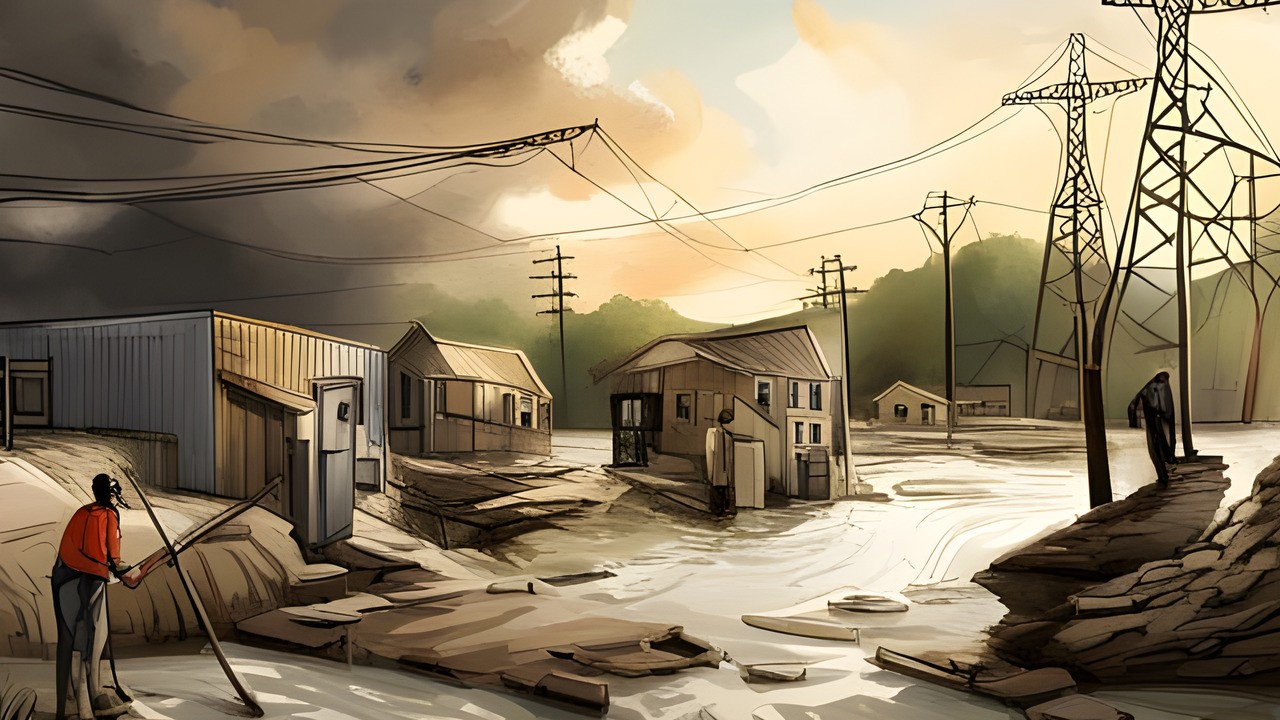Extreme weather events, including hurricanes, wildfires, and floods, have become increasingly frequent and severe in recent years. These events pose significant challenges to power companies, often resulting in widespread outages and disruptions to electricity supply. To ensure the reliable and uninterrupted provision of power, it is crucial for power companies to enhance their resilience and disaster preparedness.
This article seeks to enhance awareness and understanding of disaster preparedness by examining the devastating flood disaster in the German Ahr Valley (2021), which resulted in 189 fatalities and underscored the critical importance of efficient coordination among authorities. Drawing from these lessons, we delve into essential strategies that power companies can adapt to minimize the consequences of extreme weather events and protect their infrastructure.
Planning effectively nullifies the element of luck.
Proverbial saying
Invest in Resilient Infrastructure
One of the primary steps power companies should take is to invest in resilient infrastructure. This involves assessing the vulnerability of existing power generation, transmission, and distribution systems to extreme weather events and implementing upgrades where necessary.
For example, strengthening power poles, transmission towers, and substations can help withstand high winds during hurricanes. Underground transmission and distribution lines can reduce the risk of damage from wildfires and storms. Moreover, deploying smart grid technologies that enhance monitoring and control capabilities can facilitate rapid detection of faults and enable prompt response during extreme weather events.
Diversify Power Generation Sources
Power companies can enhance their resilience by diversifying their power generation sources. Relying solely on centralized power plants can make the grid susceptible to widespread disruptions during extreme weather events.
Incorporating renewable energy sources, such as solar and wind power, along with decentralized microgrids can help distribute power generation across multiple locations. This approach not only improves the overall resilience of the system, but also reduces reliance on vulnerable transmission lines, minimizing the impact of extreme weather events.
Develop Robust Emergency Response Plans
Effective emergency response plans are crucial for power companies to minimize the impact of extreme weather events. These plans should involve close coordination with local emergency management agencies and other relevant stakeholders.
Power companies must establish clear protocols for assessing and prioritizing repairs, communicating with customers, and restoring power in a systematic and efficient manner. Regular drills and training exercises can ensure that employees are well-prepared to handle emergency situations, enabling swift and coordinated response efforts.

Strengthen Communication and Customer Engagement
During extreme weather events, timely and accurate communication is vital. Power companies should leverage various communication channels, such as social media, text messages, and mobile applications, to provide regular updates on outages, estimated restoration times, and safety precautions.
Establishing a dedicated customer service team to handle inquiries and complaints can improve customer satisfaction and help manage expectations. Additionally, proactive engagement with customers through educational campaigns on disaster preparedness and energy conservation can promote a culture of resilience within the community.
Collaborate with Government and Community Organizations
Power companies should actively collaborate with government agencies and community organizations to enhance their disaster preparedness. This collaboration can involve sharing data, conducting joint planning exercises, and participating in community resilience initiatives.
Engaging in public-private partnerships can enable the pooling of resources and expertise, leading to more effective response and recovery efforts. By working together, power companies can contribute to the development of comprehensive resilience strategies that benefit the entire community.
Embrace Advanced Technologies
Advancements in technology offer significant opportunities for power companies to improve their resilience and disaster preparedness. For example, deploying advanced weather monitoring systems can provide accurate and real-time data on approaching storms, enabling proactive response measures.
Predictive analytics and machine learning algorithms can help forecast potential damage and optimize resource allocation for repairs and restoration. Furthermore, leveraging remote sensing technologies, such as drones, can facilitate rapid infrastructure inspections in hazardous environments, expediting the recovery process.
Takeaway
As extreme weather events continue to challenge power companies worldwide, investing in resilience and disaster preparedness is essential. By enhancing infrastructure, diversifying power generation sources, developing robust emergency response plans, strengthening communication, collaborating with stakeholders, and embracing advanced technologies, power companies can mitigate the impact of hurricanes, wildfires, floods, and other extreme weather events. Proactive measures to enhance resilience not only ensure the reliable supply of electricity, but also contribute to the overall resilience and well-being of the communities they serve.
While our company cannot prevent natural disasters, we are committed to offer proactive assistance through decentralized power supply, microgrids, and comprehensive grid monitoring system solutions. If you have any inquiries, please don't hesitate to reach out to us. We also value your feedback and encourage you to share your thoughts in the comments section.
Editor's note: This article was originally published in July 2023 and has been updated for comprehensiveness.





All comments are moderated before being published. Inappropriate or off-topic comments may not be approved.